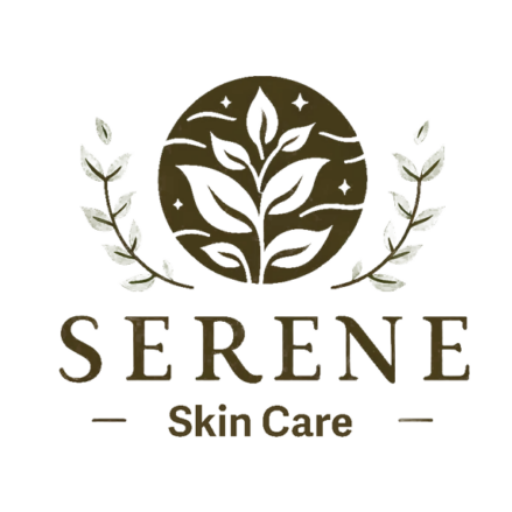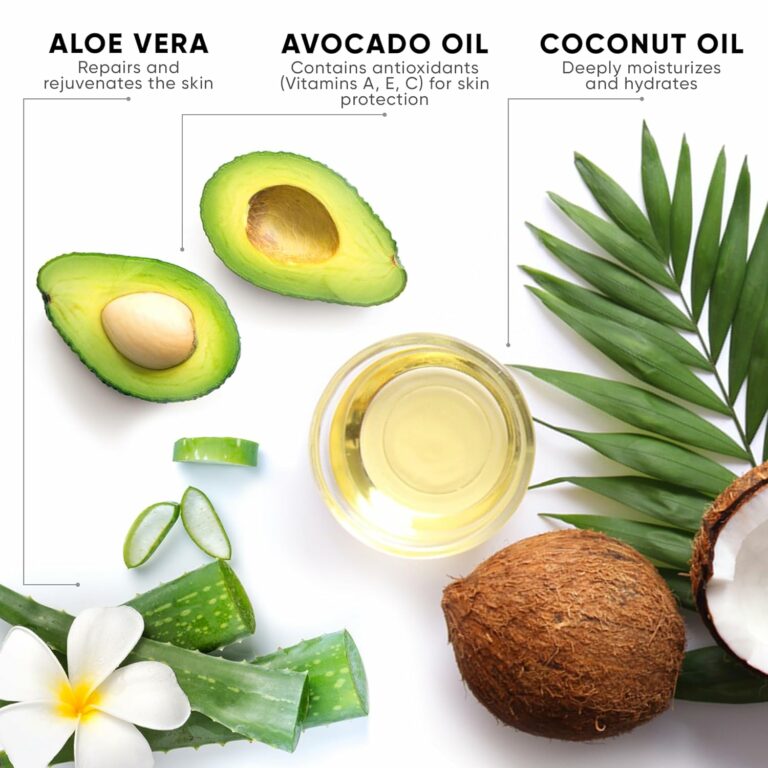In “Skincare For Different Skin Types: A Comprehensive Guide,” readers are presented with an all-encompassing resource to assist them in understanding their unique skin needs. This informative article explores the various types of skin and offers tailored skincare recommendations for each. From oily and acne-prone to dry and sensitive, this guide equips individuals with the knowledge they need to achieve healthy, radiant skin. Discover the best practices for caring for your skin type and unlock the secrets to a flawless complexion.
Normal Skin
Characteristics of Normal Skin
Normal skin is balanced and not excessively oily or dry. It has a smooth texture and a healthy glow. People with normal skin generally have small pores and few blemishes. It is less prone to sensitivity and can tolerate a wide range of skincare products and treatments. Normal skin retains moisture well, maintaining a natural level of hydration.
Skincare Routine for Normal Skin
For those fortunate enough to have normal skin, a simple yet effective skincare routine is all that is needed. Cleansing the skin twice a day with a gentle cleanser helps remove impurities and maintain its natural balance. Follow up with a non-alcoholic toner to further cleanse and refresh the skin.
Moisturizing is essential for normal skin, as it helps maintain hydration levels and keeps the skin barrier intact. Choose a lightweight moisturizer that suits your preferences and apply it both morning and night. Don’t forget to apply SPF during the day to protect your skin from harmful UV rays.
Exfoliation once or twice a week can help remove dead skin cells and promote cell turnover. Opt for a mild exfoliant that does not have harsh particles or chemicals that can irritate the skin. Finally, pamper your skin with a weekly face mask tailored to your specific needs. Whether it’s a hydrating mask, a brightening mask, or a detoxifying mask, choose one that suits your skin’s requirements.
Dry Skin
Characteristics of Dry Skin
Dry skin lacks the necessary oil production to keep it moisturized, resulting in tightness, flakiness, and dullness. It often feels rough to the touch and can be prone to wrinkles and fine lines. Dry skin may also have a compromised skin barrier, leading to increased sensitivity and a higher risk of irritation.
Skincare Routine for Dry Skin
To care for dry skin, hydration is key. Start with a gentle and hydrating cleanser that does not strip away the skin’s natural oils. Avoid hot water when cleansing, as it can further dry out the skin. Follow up with a moisturizing toner to nourish and prep the skin for subsequent products.
Invest in a rich and nourishing moisturizer that is specifically designed for dry skin. Look for ingredients like hyaluronic acid, ceramides, and shea butter to provide intense hydration and to help repair the skin barrier. Apply moisturizer both morning and night, paying extra attention to areas that tend to be drier, such as the cheeks and forehead.
Exfoliating dry skin should be done with caution, as it can aggravate the condition. Opt for a gentle exfoliator with moisturizing properties and limit its use to once a week. Incorporating a hydrating face mask into your routine can also provide an extra boost of moisture. Look for masks containing ingredients like aloe vera or honey for their soothing and hydrating properties.
Oily Skin
Characteristics of Oily Skin
Oily skin is characterized by excessive sebum production, resulting in a shiny complexion, enlarged pores, and a tendency for blemishes and acne. This skin type often feels greasy to the touch and can be prone to clogged pores. Oily skin can appear thick and heavy, even after cleansing.
Skincare Routine for Oily Skin
For oily skin, a consistent skincare routine can help regulate sebum production and maintain a balanced complexion. Begin by cleansing the skin twice a day with a gentle cleanser formulated for oily or acne-prone skin. Look for ingredients like salicylic acid or tea tree oil to help unclog pores and control excess oil.
Using a toner with a mattifying effect can further control oil production and minimize the appearance of pores. Look for a toner that is alcohol-free to avoid stripping the skin and causing rebound oil production. Follow up with a lightweight, oil-free moisturizer to keep the skin hydrated without adding excess oil.
Regular exfoliation is important for oily skin to remove dead skin cells and unclog pores. Look for exfoliants with gentle chemical exfoliants like alpha-hydroxy acids (AHAs) or beta-hydroxy acids (BHAs). Use an exfoliant 2-3 times a week to prevent over-exfoliation and potential skin irritation.
When it comes to face masks, clay or charcoal-based masks can do wonders for absorbing excess oil and reducing the appearance of pores. Look for masks that are specifically formulated for oily skin and use them once a week to keep your skin balanced and refreshed.
Combination Skin
Characteristics of Combination Skin
Combination skin is a mix of dry and oily areas. It often manifests as an oily T-zone (forehead, nose, and chin) while the cheeks and other areas remain normal to dry. This skin type requires a customized skincare routine to address the different needs of each area.
Skincare Routine for Combination Skin
The key to caring for combination skin is finding a balance between hydration and oil control. Begin by using a gentle cleanser to remove impurities without stripping the skin. Pay special attention to the oily areas, such as the T-zone, while being gentle on the drier areas.
Follow up with a toner to further cleanse and balance the skin. Look for toners that are alcohol-free and have ingredients like witch hazel or cucumber extract to calm and soothe the skin.
Moisturizing is essential for both the dry and oily areas of combination skin. Use a lightweight moisturizer on the oily areas to prevent excess oil production, and a richer moisturizer on the drier areas to address any dryness. Applying SPF during the day is crucial to protect all areas of your skin from sun damage.
Exfoliation should be done 2-3 times a week, focusing on the oily areas. Use a gentle exfoliant to unclog pores and remove dead skin cells. When choosing a face mask, opt for one that caters to the needs of the specific areas of your face. For example, use a purifying clay mask on the T-zone, and a hydrating mask on the drier areas.
Sensitive Skin
Characteristics of Sensitive Skin
Sensitive skin is easily irritated and prone to redness, itching, and tightness. It can be caused by a variety of factors, including genetics, environmental factors, or allergies. Sensitive skin requires gentle and soothing skincare products to avoid further irritation.
Skincare Routine for Sensitive Skin
When it comes to sensitive skin, simplicity is key. Begin by choosing a gentle cleanser specifically formulated for sensitive skin. Look for fragrance-free and soap-free options that will provide a thorough cleanse without causing irritation.
Avoid using toners that contain alcohol or harsh ingredients, as they can exacerbate sensitivity. Instead, opt for a toner that is alcohol-free and contains soothing ingredients such as chamomile or green tea.
Moisturizing is crucial for sensitive skin to restore and protect the skin barrier. Look for moisturizers that are hypoallergenic and free of potential irritants such as fragrances and dyes. Apply moisturizer both morning and night to keep the skin hydrated and calm.
Exfoliation should be approached with caution for sensitive skin. If necessary, choose a gentle exfoliant with mild particles or try a chemical exfoliant such as lactic acid or PHA (polyhydroxy acid). Limit exfoliation to once a week to avoid overstimulating the skin.
When it comes to face masks, look for ones specifically formulated for sensitive skin. Choose masks that are fragrance-free and contain soothing ingredients like aloe vera or oatmeal. Use them sparingly and monitor how your skin reacts to ensure they do not cause any irritation or redness.
Acne-Prone Skin
Characteristics of Acne-Prone Skin
Acne-prone skin is characterized by frequent breakouts, including whiteheads, blackheads, pimples, or cysts. It can be caused by various factors such as hormonal imbalances, excessive sebum production, or clogged pores. Acne-prone skin requires a consistent and targeted skincare routine to manage breakouts and promote clearer skin.
Skincare Routine for Acne-Prone Skin
When dealing with acne-prone skin, it is important to use products that are gentle yet effective in treating breakouts. Begin by cleansing the skin twice a day with a gentle cleanser formulated for acne-prone skin. Look for ingredients like salicylic acid or benzoyl peroxide to help unclog pores and reduce bacteria.
Using a toner targeted for acne-prone skin can further remove impurities and excess oil. Look for toners with ingredients like tea tree oil or witch hazel to help reduce inflammation and promote clearer skin.
Moisturizing is crucial, even for acne-prone skin. Look for lightweight, oil-free moisturizers that won’t clog pores and exacerbate breakouts. Opt for moisturizers with ingredients like niacinamide or hyaluronic acid to hydrate the skin without adding additional oil.
Exfoliation plays a vital role in managing acne-prone skin. Incorporate a chemical exfoliant containing AHAs or BHAs into your routine to help unclog pores and promote cell turnover. Use it 2-3 times a week and adjust frequency based on your skin’s response.
For face masks, choose ones specifically formulated for acne-prone skin. Look for masks with ingredients like sulfur or clay to absorb excess oil and calm inflammation. Use them once a week to manage breakouts and keep the skin clear.
Mature Skin
Characteristics of Mature Skin
Mature skin is characterized by visible signs of aging, such as fine lines, wrinkles, and loss of elasticity. It may also experience dryness and a thinning of the skin. Mature skin requires targeted skincare to address specific concerns and nourish the skin to maintain a youthful appearance.
Skincare Routine for Mature Skin
When it comes to mature skin, hydration and nourishment are key. Begin by using a gentle cleanser that does not strip the skin of its natural oils. Look for cleansers that are specifically formulated for mature skin and contain ingredients like hyaluronic acid or peptides to boost hydration and support collagen production.
Follow up with a toner that is alcohol-free and contains hydrating ingredients to further prepare the skin for subsequent products. Look for toners that also have ingredients like vitamin C or niacinamide to address specific concerns like uneven skin tone or dullness.
Moisturizing is essential for mature skin to provide hydration and restore elasticity. Invest in a moisturizer specifically formulated for mature skin, which often contains anti-aging ingredients like retinol or ceramides. Apply moisturizer both morning and night, focusing on areas prone to dryness or wrinkles.
Incorporating a serum into your routine can provide an extra boost of nourishment and target specific concerns. Look for serums containing ingredients like vitamin C or peptides to address concerns such as hyperpigmentation or loss of firmness.
Using a face mask once or twice a week can provide intense hydration and further nourish the skin. Look for masks containing ingredients like collagen or hyaluronic acid to help plump and firm the skin, reducing the appearance of fine lines and wrinkles.
Dehydrated Skin
Characteristics of Dehydrated Skin
Dehydrated skin lacks water, resulting in tightness, flakiness, and dullness. It can be caused by various factors such as environmental conditions, improper skincare, or even diet. Dehydrated skin requires targeted hydration to restore its moisture balance and maintain a healthy glow.
Skincare Routine for Dehydrated Skin
The key to caring for dehydrated skin is replenishing and retaining moisture. Begin by cleansing the skin with a non-stripping and hydrating cleanser. Look for cleansers that are gentle and contain ingredients like hyaluronic acid or glycerin to attract and retain moisture.
Using a hydrating toner can further boost the moisture levels of dehydrated skin. Look for toners with ingredients like rose water or aloe vera to soothe and plump the skin.
Moisturizing is crucial for dehydrated skin to restore and maintain hydration. Choose a moisturizer with a rich and nourishing texture that can penetrate deeply into the skin. Look for moisturizers containing ceramides or shea butter to help strengthen the skin barrier and lock in moisture. Apply moisturizer both morning and night, focusing on areas prone to dryness.
Using a hydrating serum or face oil can provide an extra layer of nourishment and help retain moisture. Look for serums or oils containing ingredients like squalane or vitamin E to replenish and protect the skin barrier.
Incorporating a hydrating sheet mask into your routine once or twice a week can provide an intense boost of hydration. Look for masks with ingredients like hyaluronic acid or aloe vera to help revive and plump dehydrated skin.
Rosacea-Prone Skin
Characteristics of Rosacea-Prone Skin
Rosacea-prone skin is characterized by persistent redness, visible blood vessels, and often, small bumps or pustules. It can be triggered by various factors such as heat, alcohol, spicy foods, or certain skincare products. Rosacea-prone skin requires gentle and soothing skincare to reduce inflammation and manage flare-ups.
Skincare Routine for Rosacea-Prone Skin
When it comes to rosacea-prone skin, simplicity and gentleness are essential. Begin by using a gentle cleanser that does not contain harsh ingredients or fragrances. Look for cleansers specifically formulated for sensitive or rosacea-prone skin, as they are designed to soothe and calm inflammation.
Avoid using toners that contain alcohol or other potential irritants, as they can exacerbate rosacea symptoms. Instead, opt for a toner that is alcohol-free and has calming ingredients like chamomile or green tea to reduce redness and inflammation.
Moisturizing is crucial for rosacea-prone skin to repair and strengthen the skin barrier. Look for moisturizers that are hypoallergenic and free of fragrances or dyes. Choose moisturizers that contain ingredients like ceramides or niacinamide to soothe and hydrate the skin. Apply moisturizer both morning and night, focusing on areas prone to redness or dryness.
Exfoliation should be approached cautiously for rosacea-prone skin, as it can aggravate inflammation. If necessary, choose a gentle exfoliant with mild particles or try a chemical exfoliant like PHA. Limit exfoliation to once a week and monitor your skin’s response.
When it comes to face masks, choose ones specifically formulated for sensitive or rosacea-prone skin. Look for masks that contain ingredients like colloidal oatmeal or aloe vera to calm and reduce redness. Use them sparingly and monitor your skin for any signs of irritation.
Hyperpigmented Skin
Characteristics of Hyperpigmented Skin
Hyperpigmented skin is characterized by patches or areas of darkened skin, often caused by an overproduction of melanin. It can be caused by various factors such as sun exposure, hormonal changes, or inflammation. Hyperpigmented skin requires targeted skincare to reduce the appearance of dark spots and even out skin tone.
Skincare Routine for Hyperpigmented Skin
When it comes to hyperpigmented skin, a consistent skincare routine with brightening and lightening ingredients is crucial. Begin by cleansing the skin with a gentle cleanser that does not strip away too much moisture. Look for cleansers containing brightening ingredients like vitamin C or kojic acid.
Using a brightening toner can further improve the overall appearance of hyperpigmented skin. Look for toners containing ingredients like niacinamide or licorice extract to help reduce the appearance of dark spots and even out skin tone.
Moisturizing is important for hyperpigmented skin to keep the skin hydrated and plump. Look for moisturizers that contain brightening ingredients like vitamin C or alpha-arbutin to help fade hyperpigmentation. Apply moisturizer both morning and night, focusing on areas prone to dark spots.
Incorporating a brightening serum into your routine can provide an extra boost in reducing hyperpigmentation. Look for serums containing ingredients like vitamin C, niacinamide, or retinol to help fade dark spots and even out skin tone.
Using a targeted face mask once a week can help intensify the brightening effect on hyperpigmented skin. Look for masks containing ingredients like niacinamide or licorice extract to enhance the overall brightening and lightening properties.
By understanding the characteristics of different skin types and customizing skincare routines accordingly, anyone can achieve healthier and more radiant skin. Whether it’s normal, dry, oily, combination, sensitive, acne-prone, mature, dehydrated, rosacea-prone, or hyperpigmented skin, there are skincare routines and products available to address specific concerns. With proper care and attention, achieving and maintaining beautiful skin is within reach for everyone.







